Programs & Services
Rehabilitation of Former Street & Other Vulnerable Children
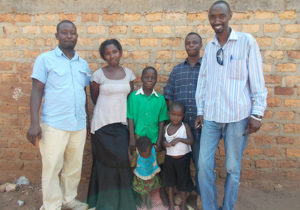
SASCU engages in withdrawing vulnerable children from the streets and taking them through transitional rehabilitation at our transitional home. In the course of our work, withdrawn children access a wide range of support services including Medical treatment, shelter, nutrition, psychosocial support and skills training among others. During rehabilitation, child home tracing is done to aid reintegration of children to their families/communities, and or children are enrolled into relevant education programmes.
Rehabilitation takes a period of six (6) to eighteen (18) months depending on the rehabilitation needs of a given child. It can also take longer depending on the progress made in tracing for the child’s home of origin.
Street Outreaches
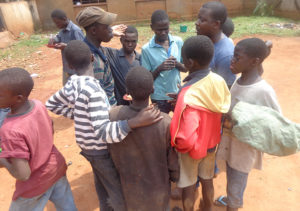
In order to reach out to children working and living on the streets for sensitization and further support, SASCU carries out Street outreach sessions within Kampala in areas of Wandegeya, Kisenyi, Kivulu, Kamwokya, City center, Kyebando Kisalosalo and Bwaise. Through the sessions, children living and working on the street learn about SASCU’s psychosocial services offered at the one stop center. Thereafter, children from the street situations get the opportunity to access support in terms of rehabilitation through counseling, free legal aid services, shelter, meals, home to play, love and care among other services.
After testing SASCU’s services, children are then withdrawn and later reconciled and reintegrated into their families. This has contributed to the reduction on the high number of children on the streets and respect for the children’s right of growing up with their parents/relatives.
Psychosocial Care and Support to Vulnerable Children
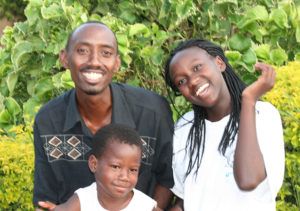
This forms a major component of SASCU work in Uganda benefitting over 300 children. Under this program, children from vulnerable situations are able to access Psychosocial Care and Support services from SASCU through specialized Counseling, legal aid support, educational support in terms of provision of school fees, scholastic material, uniforms; and access to recreational games and parental support.
SASCU presents a one stop center where children‘s needs are assessed and responded to with a wide range of interventions. We help children appreciate their history and identities, ensure their meaningful participation, and encourage them to set goals and reach their full potential. Beneficiary children receive life skills support from the safe platform provided by SASCU. Recreational programs are encouraged to help vulnerable children forget the past experiences they went through while on the streets.
Music Dance and Drama (MDD)
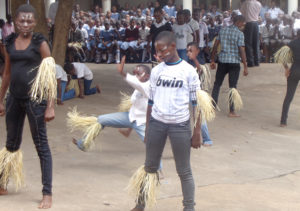 SASCU employs MDD to promote talents among vulnerable children. Through MDD, a SASCU drama group was formed and has been used in awareness creation campaigns through plays, songs and poems to highlight the challenge of vulnerable children in Uganda.
SASCU employs MDD to promote talents among vulnerable children. Through MDD, a SASCU drama group was formed and has been used in awareness creation campaigns through plays, songs and poems to highlight the challenge of vulnerable children in Uganda.
It is principally aimed at strengthening local capacities for human rights education, training and public information. MDD helps children in disseminating life skills and HIV prevention messages to the fellow children by promoting resilience, behavioral change education, combined with accessibility to youth friendly services to cover STD/STI treatment which blends utilization of child friendly services and referral messages to attract more vulnerable children to adopt health-seeking behaviors.
Reconciliation and Reintegration/Resettlement
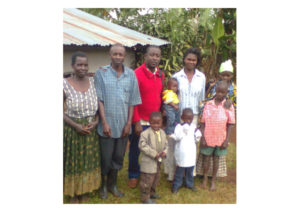 It’s a natural fact that children do not belong in orphanages/ institutions; reintegration forms an integral part of our functions as an organization. This includes withdrawal, home tracing and reconciliation between the family and a child.
It’s a natural fact that children do not belong in orphanages/ institutions; reintegration forms an integral part of our functions as an organization. This includes withdrawal, home tracing and reconciliation between the family and a child.
It is a gradual process that involves re-uniting beneficiaries with their families. The exercise is carried out by a team of our social workers with the probation and social welfare officers as line government representatives and local council authorities together with recipient families. In this endeavor, SASCU collaborates with other likeminded civil society organizations.
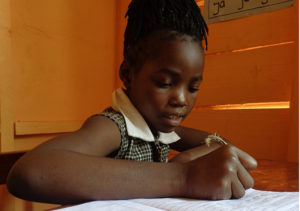 SASCU as an organization promotes the right to Education as a fundamental right as enshrined in international, regional and national child rights laws.
SASCU as an organization promotes the right to Education as a fundamental right as enshrined in international, regional and national child rights laws.
Early Childhood Care and Development
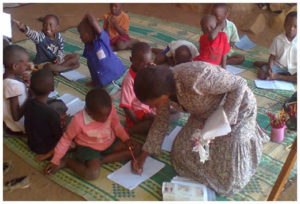 Since 2012, SASCU has been running an Early Childhood Development Project (ECCD), an initiative that targets vulnerable children from the community between the ages of three to six years. Emerging out of the between SASCU, Plan Uganda and the Community members of Mulago 111 parish in Kawempe division, the project has enrolled over one hundred and five children (105) children and provided them with scholastic materials. The high prevalence of poverty and AIDs compelled SASCU to take up the ECCD project as a mitigation measure aimed at reducing the number of children that do not go to school within the slums of Kifumbira and Mulago.
Since 2012, SASCU has been running an Early Childhood Development Project (ECCD), an initiative that targets vulnerable children from the community between the ages of three to six years. Emerging out of the between SASCU, Plan Uganda and the Community members of Mulago 111 parish in Kawempe division, the project has enrolled over one hundred and five children (105) children and provided them with scholastic materials. The high prevalence of poverty and AIDs compelled SASCU to take up the ECCD project as a mitigation measure aimed at reducing the number of children that do not go to school within the slums of Kifumbira and Mulago.
Children’s protective environment has been defended by supporting parents, caregivers and pregnant women, as well as looking at wider contexts, such as government policies and societal attitudes.
The Youth Transferable Skills Project (YTS)
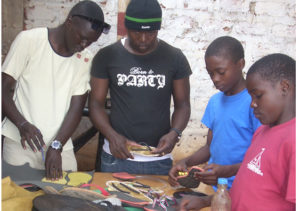 This Project targets both resettled children and those from the community between the ages of twelve and twenty two years. The project is aimed at preparing and empowering young adults to be economically productive and independent to be in position to make a contribution to society within their communities. The approach emphasizes self-empowerment as a measure of breaking the inter-generational cycle of poverty. To harmonize the above, SASCU through partnership with International Women Organization established a tailoring project at the Centre.
This Project targets both resettled children and those from the community between the ages of twelve and twenty two years. The project is aimed at preparing and empowering young adults to be economically productive and independent to be in position to make a contribution to society within their communities. The approach emphasizes self-empowerment as a measure of breaking the inter-generational cycle of poverty. To harmonize the above, SASCU through partnership with International Women Organization established a tailoring project at the Centre.
It is used as training and an income generating source for the organization. SASCU established a hair dressing salon which currently offers apprenticeship to young adults’ in terms of skills development and income generation to the organization. A craft shoe making project is yet another sustainable component that is run by ex-street children at the Centre.
Child &Family Economic Empowerment
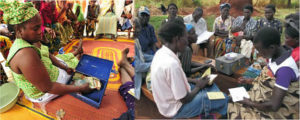 Many children living on the streets are victims of poverty as they are forced to join the streets due to failure to access basic needs like food, clothing and education. Empowering the families to increase incomes in their households is one measure that can greatly help improve the situation in vulnerable families as they are able to engage in small well managed businesses.
Many children living on the streets are victims of poverty as they are forced to join the streets due to failure to access basic needs like food, clothing and education. Empowering the families to increase incomes in their households is one measure that can greatly help improve the situation in vulnerable families as they are able to engage in small well managed businesses.
As a means of ensuring that resettled children do not go back to the street, they are provided with livelihood support. Children are given resettlement packages that include numerous items such as mattresses, clothing, vocational activity items (toolkits) and sometimes business startup resources. This has aided former street children to achieve economic sustainability and responsibility for their personal development. This intervention is aimed at economically equipping beneficiaries to transform the economic status of the family as well. We also extend the livelihood support program to affected families (families with vulnerable children) as a means of transforming them economically. This measure will allow families to be able to provide for the needs of their children as a way of stopping them from joining the street.
Rehabilitation of Former Street & Other Vulnerable Children

SASCU engages in withdrawing vulnerable children from the streets and taking them through transitional rehabilitation at our transitional home. In the course of our work, withdrawn children access a wide range of support services including Medical treatment, shelter, nutrition, psychosocial support and skills training among others. During rehabilitation, child home tracing is done to aid reintegration of children to their families/communities, and or children are enrolled into relevant education programmes.
Rehabilitation takes a period of six (6) to eighteen (18) months depending on the rehabilitation needs of a given child. It can also take longer depending on the progress made in tracing for the child’s home of origin.
Street Outreaches

In order to reach out to children working and living on the streets for sensitization and further support, SASCU carries out Street outreach sessions within Kampala in areas of Wandegeya, Kisenyi, Kivulu, Kamwokya, City center, Kyebando Kisalosalo and Bwaise. Through the sessions, children living and working on the street learn about SASCU’s psychosocial services offered at the one stop center. Thereafter, children from the street situations get the opportunity to access support in terms of rehabilitation through counseling, free legal aid services, shelter, meals, home to play, love and care among other services.
After testing SASCU’s services, children are then withdrawn and later reconciled and reintegrated into their families. This has contributed to the reduction on the high number of children on the streets and respect for the children’s right of growing up with their parents/relatives.
Psychosocial Care and Support to Vulnerable Children

This forms a major component of SASCU work in Uganda benefitting over 300 children. Under this program, children from vulnerable situations are able to access Psychosocial Care and Support services from SASCU through specialized Counseling, legal aid support, educational support in terms of provision of school fees, scholastic material, uniforms; and access to recreational games and parental support.
SASCU presents a one stop center where children‘s needs are assessed and responded to with a wide range of interventions. We help children appreciate their history and identities, ensure their meaningful participation, and encourage them to set goals and reach their full potential. Beneficiary children receive life skills support from the safe platform provided by SASCU. Recreational programs are encouraged to help vulnerable children forget the past experiences they went through while on the streets.
Music Dance and Drama (MDD)
 SASCU employs MDD to promote talents among vulnerable children. Through MDD, a SASCU drama group was formed and has been used in awareness creation campaigns through plays, songs and poems to highlight the challenge of vulnerable children in Uganda.
SASCU employs MDD to promote talents among vulnerable children. Through MDD, a SASCU drama group was formed and has been used in awareness creation campaigns through plays, songs and poems to highlight the challenge of vulnerable children in Uganda.
It is principally aimed at strengthening local capacities for human rights education, training and public information. MDD helps children in disseminating life skills and HIV prevention messages to the fellow children by promoting resilience, behavioral change education, combined with accessibility to youth friendly services to cover STD/STI treatment which blends utilization of child friendly services and referral messages to attract more vulnerable children to adopt health-seeking behaviors.
Reconciliation and Reintegration/Resettlement
 It’s a natural fact that children do not belong in orphanages/ institutions; reintegration forms an integral part of our functions as an organization. This includes withdrawal, home tracing and reconciliation between the family and a child.
It’s a natural fact that children do not belong in orphanages/ institutions; reintegration forms an integral part of our functions as an organization. This includes withdrawal, home tracing and reconciliation between the family and a child.
It is a gradual process that involves re-uniting beneficiaries with their families. The exercise is carried out by a team of our social workers with the probation and social welfare officers as line government representatives and local council authorities together with recipient families. In this endeavor, SASCU collaborates with other likeminded civil society organizations.
 SASCU as an organization promotes the right to Education as a fundamental right as enshrined in international, regional and national child rights laws.
SASCU as an organization promotes the right to Education as a fundamental right as enshrined in international, regional and national child rights laws.
Early Childhood Care and Development
 Since 2012, SASCU has been running an Early Childhood Development Project (ECCD), an initiative that targets vulnerable children from the community between the ages of three to six years. Emerging out of the between SASCU, Plan Uganda and the Community members of Mulago 111 parish in Kawempe division, the project has enrolled over one hundred and five children (105) children and provided them with scholastic materials. The high prevalence of poverty and AIDs compelled SASCU to take up the ECCD project as a mitigation measure aimed at reducing the number of children that do not go to school within the slums of Kifumbira and Mulago.
Since 2012, SASCU has been running an Early Childhood Development Project (ECCD), an initiative that targets vulnerable children from the community between the ages of three to six years. Emerging out of the between SASCU, Plan Uganda and the Community members of Mulago 111 parish in Kawempe division, the project has enrolled over one hundred and five children (105) children and provided them with scholastic materials. The high prevalence of poverty and AIDs compelled SASCU to take up the ECCD project as a mitigation measure aimed at reducing the number of children that do not go to school within the slums of Kifumbira and Mulago.
Children’s protective environment has been defended by supporting parents, caregivers and pregnant women, as well as looking at wider contexts, such as government policies and societal attitudes.
The Youth Transferable Skills Project (YTS)
 This Project targets both resettled children and those from the community between the ages of twelve and twenty two years. The project is aimed at preparing and empowering young adults to be economically productive and independent to be in position to make a contribution to society within their communities. The approach emphasizes self-empowerment as a measure of breaking the inter-generational cycle of poverty. To harmonize the above, SASCU through partnership with International Women Organization established a tailoring project at the Centre.
This Project targets both resettled children and those from the community between the ages of twelve and twenty two years. The project is aimed at preparing and empowering young adults to be economically productive and independent to be in position to make a contribution to society within their communities. The approach emphasizes self-empowerment as a measure of breaking the inter-generational cycle of poverty. To harmonize the above, SASCU through partnership with International Women Organization established a tailoring project at the Centre.
It is used as training and an income generating source for the organization. SASCU established a hair dressing salon which currently offers apprenticeship to young adults’ in terms of skills development and income generation to the organization. A craft shoe making project is yet another sustainable component that is run by ex-street children at the Centre.
Child &Family Economic Empowerment
 Many children living on the streets are victims of poverty as they are forced to join the streets due to failure to access basic needs like food, clothing and education. Empowering the families to increase incomes in their households is one measure that can greatly help improve the situation in vulnerable families as they are able to engage in small well managed businesses.
Many children living on the streets are victims of poverty as they are forced to join the streets due to failure to access basic needs like food, clothing and education. Empowering the families to increase incomes in their households is one measure that can greatly help improve the situation in vulnerable families as they are able to engage in small well managed businesses.
As a means of ensuring that resettled children do not go back to the street, they are provided with livelihood support. Children are given resettlement packages that include numerous items such as mattresses, clothing, vocational activity items (toolkits) and sometimes business startup resources. This has aided former street children to achieve economic sustainability and responsibility for their personal development. This intervention is aimed at economically equipping beneficiaries to transform the economic status of the family as well. We also extend the livelihood support program to affected families (families with vulnerable children) as a means of transforming them economically. This measure will allow families to be able to provide for the needs of their children as a way of stopping them from joining the street.
Lorem porttitor nunc gravida a lacinia imperdiet curabitur odio porttitor nullam massa quis elit sit blandit sapien gravida elit blandit dictum imperdiet venenatis sagittis congue amet velit sagittis purus nunc gravida ut blandit velit dictum accumsan elit elit molestie lacinia adipiscing orci ornare non pretium gravida molestie ornare accumsan sit